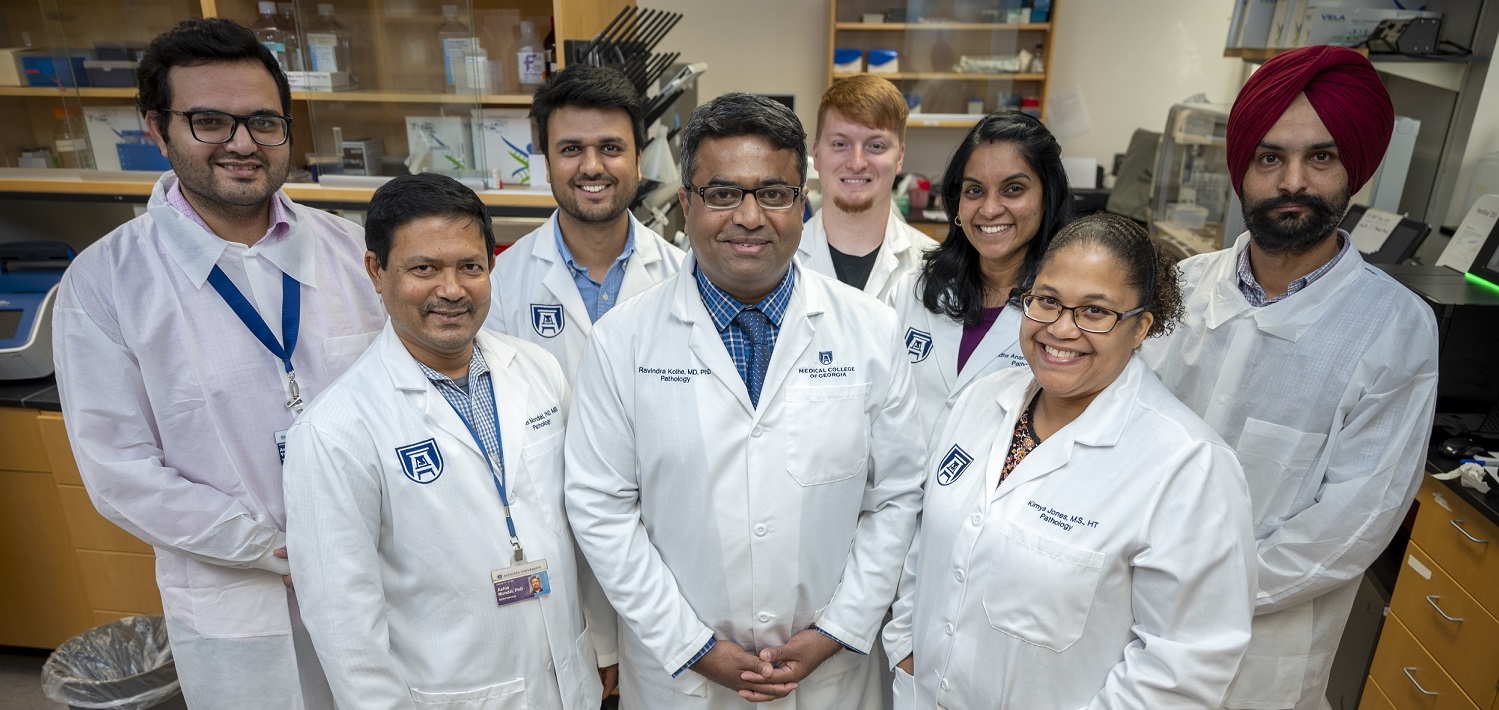
Pathology Electives
Back to Elective Bulletin Page
Surgical Pathology Externship
PATH 5003Category: Clinical
Eligible: All
Length: 2 or 4 weeks
Course Description: During this course students will participate in routine microscopic
sign out with faculty members including biopsies and gross surgical specimens; review
cases with pathologists at daily consensus meeting, interdepartmental tumor boards,
departmental didactic conferences, and gross specimen and autopsy conferences; participate
in the preparation of frozen section for immediate diagnosis during intraoperative
consultations; and observe and participate in the performance of postmortem examinations.
Locations currently used by this rotation include MCG as well as Savannah.
Clinical Pathology Externship
PATH 5009Category: Clinical
Eligible: All
Length: 2 or 4 weeks
Course Description: During this four-week elective course, students will spend approximately one week in each area of Clinical Pathology to include Chemistry (under Dr. Singh), Microbiology (under Dr. McMullen), Hematology (under Dr. Savage), and Transfusion Medicine (under Drs. Bollag and Shikle). If so desired, additional time can be spent in any of the sub- disciplines, molecular pathology, anatomic pathology, etc. This can be arranged through Dr. Savage. The student will attend noon conferences, Monday Morning Conferences, observe bench work of technologists, review cases/participate in sign-out with the Section Director, and participate in other activities of each Section.
Pathology Off-Campus Externship
PATH 5014Category: Clinical
Eligible: Enrichment Only
Length: 2 or 4 weeks
This course requires application using VSLO or other arrangements made by the student. Off-Campus Elective-Form and supporting documents required.
Course Description: This course allows students to rotate in an off-campus lab or program outside of MCG.
Anatomic Pathology Externship
PATH 5016Category: Clinical
Eligible: All
Length: 2 or 4 weeks
Course Description: During this course students will perform autopsy and find basic clinical pathologic correlations, participate in processing and examination of surgical pathology and cytology specimens, apply clinical interpretation and medical judgment in such examinations, and attend conferences and lectures.
Clinical Microbiology Externship
PATH 5019Category: Clinical
Eligible: All
Length: 2 weeks
Course Description: During this course students will attend section conferences, observe the bench work of technologists, participate in daily Microbiology rounds, review charts, and meet with clinicians for patients with complex results.
Introduction to Pathology
PATH 5028
Category: Clinical
Eligible: All
Length: 2 or 4 weeks
This course is open to all students but is offered only on regional campuses. It is not offered in Augusta.
Course Description: This course is designed to provide students with an opportunity to rotate through a busy pathology department and experience the full array of daily functions undertaken in such a department.
Forensic Medicine
PATH 5029Category: Clinical
Eligible: All
Length: 4 weeks
This course is open to all students but is offered only on the Savannah campus. Signup must be completed using the Savannah Campus form.
Course Description: This elective course is designed to provide medical students in their third and fourth year of training an opportunity to rotate with the Georgia Bureau of Investigation, Division of Forensic Sciences in forensic medicine. The medical student will assist with autopsies performed on decedents of all ages, who died from both natural and non-natural causes. The student will learn to correlate investigative data, autopsy findings, and toxicology results to construct differential diagnoses and determine cause and manner of death. The student will gain exposure to the pathology of natural disease and common injury patterns seen in blunt force trauma, sharp force injury, firearms injury, motor vehicle fatalities, asphyxia injuries, temperature and electrical injuries, and suspected elder and child abuse. The student will learn to correctly sign a death certificate, understanding the differences between cause, manner, and mechanism of death. The student will attend criminal court and learn how the medicolegal death investigation system interacts with the criminal and civil legal systems, as well as public health and safety agencies. When possible, the student will rotate through forensic science departments and participate in a mock trial, held in the Georgia Bureau of Investigation training courtroom. When possible, students will gain exposure to forensic odontology and forensic anthropology. Opportunities to publish case reports or participate in retrospective research using death certificate and autopsy data are encouraged.
Clinical Microbiology Externship
PATH 5086Category: Non-Clinical
Eligible: All
Length: 2 weeks
Course Description: This rotation allows students to develop a research project to improve patient care, develop stronger medical knowledge in pathology, and become more aware of the recent pathology literature; learn to better critically evaluate pathology literature and use literature for evidenced based medicine practices. The student will develop better communications skills to work effectively with faculty, staff, and other learners.